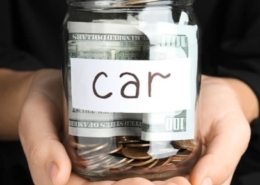How Can I Avoid Car Buying Scams and Fraud When Buying a Car?
A comprehensive guide on how to avoid fraud and scams when buying a vehicle.
You may feel excitement and nerves if you want a new car. On the one hand, it’s thrilling to think about the possibilities of a new car and the freedom it can provide.
On the other hand, buying a used car can be daunting, especially when considering the potential for scams and fraud. The good news is that there are several steps you can take to protect yourself and avoid falling victim to fraudulent schemes.
In this article, we’ll explore some of the best ways to stay safe by avoiding car buying scams and making an intelligent purchase when buying a car.
Car Buying Tip: Are you in the market for a new car? You may have noticed that finding a vehicle at a reasonable price can be challenging in today’s market, with many buyers ending up paying more than the suggested retail price. However, there’s no need to worry! You can still snag a fantastic deal on a vehicle by requesting a free dealer price quote and comparing local dealer prices.
The Importance of Avoiding Scams and Fraud When Buying a Car
Buying a car is a significant decision that requires careful consideration. It’s essential to be vigilant and avoid car buying scams and fraud when purchasing a vehicle. Not only can it save you money, but it can also ensure your safety and save you time in the long run.
Here’s why:
- Saving money: Scammers often offer cars at prices lower than their actual value, but they may not disclose hidden costs or defects. As a result, you may end up paying more than the car is worth or have to spend a lot of money on repairs after the purchase. Researching and being aware of potential scams can help you avoid these financial pitfalls.
- Ensuring safety: Some sellers may try to sell you a car that has been in an accident or has safety issues. Buying such a car can put you and others at risk, and the consequences can be severe. By avoiding scams and thoroughly inspecting the vehicle, you can ensure you’re buying a safe and reliable car.
- Saving time: Falling victim to a scam can be time-consuming and stressful. You may have to spend much time and effort trying to recover your money or resolve the issue. By avoiding scams and fraud, you can save time and hassle and focus on enjoying your new car.
In short, taking the time to research and avoid scams and fraud when buying a car is crucial. It can save you money, ensure your safety, and save you time and hassle in the long run.
Research is Key
When buying a car, research is crucial to avoid scams and fraud.
By taking the time to research before making a purchase, you can ensure that you buy a reliable vehicle from a reputable seller.
Here are some detailed bullet points outlining the first steps you should take to avoid scams and fraud when buying a car:
- Research the make and model of the car you want to buy: Before making a purchase, you should research the vehicle you are interested in. This can help you learn about the car’s features, reliability, and safety ratings. You can use online resources like Consumer Reports, Car and Driver, and Motor Trend to find reviews and ratings of different car models.
- Check the car’s value: Knowing the car’s value you are interested in is crucial to avoid overpaying. You can use online resources like RydeShopper or Edmunds to get an idea of the car’s value you’re interested in. This will help you negotiate a fair price with the seller.
- Research the seller: Checking the reputation and reviews of the seller is a crucial step to avoid scams and fraud. You can search online for reviews of the seller or dealership to get an idea of their reputation. You can also check with the Better Business Bureau to see if there have been any complaints about the seller.
- Check the vehicle history report: A vehicle history report can provide essential information about the car’s ownership history, accident history, and other issues. You can obtain a vehicle history report from services like Carfax or AutoCheck Vehicle History Report. If the seller is not willing to provide you with a vehicle history report, it’s a red flag that you should consider finding another seller.
- Have the car inspected: Before making a purchase, you should have the vehicle inspected by a mechanic. A mechanic can identify any potential issues with the car that the seller may not disclose. You should also take the car for a test drive to ensure it runs smoothly and meets your expectations.
By following these steps, you can ensure that you are making an informed decision when buying a car and avoid falling victim to scams and fraud. It’s always better to be safe than sorry, so take the time to research and inspect the car thoroughly before making a purchase.
Be Wary of Deals That Seem Too Good to be True
When shopping for a car, it’s easy to get excited when you come across a deal that seems too good to be true.
However, it’s essential to approach these situations with caution.
Scammers and fraudsters often use tactics to lure in unsuspecting buyers, so it’s important to be wary of deals that seem too good to be true.
Here are some red flags to watch out for:
- The seller only communicates via email or text: Scammers often use email or text to communicate, as it allows them to hide their identity and avoid face-to-face interactions. Be wary of sellers who avoid phone calls or in-person meetings.
- The seller asks for payment via wire transfer or a gift card: Scammers may request payment through non-traditional methods, such as wire transfers or gift cards. These payment methods offer little to no protection for the buyer, and it may be difficult to recover your money if you fall victim to a scam.
- The seller has no history or documentation for the car: Be cautious of sellers who cannot provide documentation, such as the car’s title, registration, or service history. This could indicate that the vehicle has been stolen or has hidden problems.
- The seller is located outside your area: Be wary of sellers who claim to be in another state or country, as this can make it challenging to inspect the car and verify the seller’s identity.
- The seller offers a “guarantee” or “refund policy”: Scammers may offer a refund policy or guarantee to make the deal seem more legitimate. However, these guarantees may be meaningless or difficult to enforce.
- The seller asks for payment unusually: Scammers may ask for payment through wire transfers, gift cards, or other non-traditional methods. Be wary of any seller who insists on an unusual or suspicious payment method.
- The seller asks for personal information: Be cautious if a seller asks for personal information such as your social security number or bank account information. This is often a sign of a scam.
- Beware of wire transfer scams: Scammers may ask you to wire money for a car, but once the money is sent, the seller disappears, and you never receive the vehicle. Avoid wire transfers and insist on paying in person or with a secure payment method like a cashier’s check or money order.
- Watch out for forged documents: Scammers may forge documents like titles or registration papers to make the car appear legitimate. Always verify the authenticity of documents and check for any signs of alteration.
- Be cautious of sellers who refuse to provide contact information: If a seller only communicates with you via email or text and refuses to provide a phone number or address, it could be a red flag.
- Trust your instincts: If something seems off or suspicious during the buying process, trust your instincts and walk away from the deal. It’s better to be safe than sorry.
Remember, it’s always better to be cautious and take the time to do your research when buying a car. Don’t be afraid to walk away from a deal if something seems off or too good to be true. Trust your instincts and seek advice from trusted friends or professionals if you have any doubts.
Avoid Purchasing a Car Without Inspecting It First.
When purchasing a used car, it’s essential to inspect the vehicle thoroughly before deciding. Failing to check a car can lead to costly repairs and safety concerns.
Here are some tips to ensure that you inspect the car properly:
- Take the car for a test drive: During a test drive, pay attention to how the car handles, any unusual noises, and if there are any issues with acceleration or braking.
- Have a mechanic inspect the car: A mechanic can provide a professional opinion and identify any hidden issues you may not notice.
- Check the car’s body and interior: Inspect the car’s exterior for any signs of damage, rust, or dents. Check the seats, carpets, and electronics for any damage or malfunction on the interior. Take a few deep breaths and see if you smell mold or mildew. If you do, this may indicate the vehicle has been flood-damaged.
- Check under the hood: Look for any signs of leaks, corrosion, or worn-out parts.
- Check the tires: Ensure they have enough tread and are not worn out or damaged.
- Check the vehicle history report: A vehicle history report can provide information about the car’s ownership history, accident history, and other issues.
Additionally, inspecting the car’s documentation, including the title, registration, and service records, is essential. Here are some tips on what to look for:
- Check the title: Ensure the vehicle’s title is clean and in the seller’s name. If the seller doesn’t have the title, it could be a sign of a stolen or salvaged car.
- Check the registration: The registration should be up-to-date, and the registration number on the car should match the number on the documents.
- Check the service records: The records can provide valuable information about the car’s maintenance history and any previous issues.
By inspecting the car thoroughly, you can avoid purchasing a vehicle with hidden problems or defects, ultimately saving you time and money.
Don’t Fall For Pressure Tactics
In addition to researching and inspecting the car, it’s essential to be aware of pressure tactics that scammers may use to make you feel rushed or anxious.
Here are some more tips to avoid falling for these tactics:
- Be aware of time-sensitive offers: Some sellers may offer a deal only available for a limited time. Don’t let this rush you into deciding before you’re ready.
- Don’t let a sense of urgency cloud your judgment: Scammers may try to create a sense of urgency by telling you that other buyers are interested in the car or that the price will increase soon. Don’t let this pressure you into making a decision before you’re ready.
- Be prepared to walk away: If a seller is pressuring you or you feel uncomfortable, be prepared to walk away. Don’t feel you must purchase because you’ve invested time or effort into the process.
- Don’t provide personal information or payment without a clear understanding of the terms: Scammers may ask for personal information or pay before you’ve agreed to the terms of the sale. Don’t provide this information until you’ve thoroughly researched the seller and settled on the terms of the sale.
- Beware of high-pressure sales tactics: Some scammers may use high-pressure sales tactics to push you into making a decision quickly. Don’t let them rush you into making a decision before you’re ready.
- Don’t be swayed by emotional appeals: Scammers may use emotional appeals to get you to make a purchase, such as telling you a sob story or playing on your sympathy. Stick to your research, and don’t let emotions cloud your judgment.
- Be cautious of sellers who won’t meet in person: Scammers may avoid meeting in person or insist on using a third-party payment service. Be careful of these sellers and insist on meeting in person before purchasing.
- Trust your instincts: If something is wrong, trust your gut and walk away. It’s better to be safe than sorry when purchasing a car.
Avoid Sending Money Without Seeing the Car
When buying a car, it’s crucial to exercise caution when making payments. Scammers may use tactics to convince you to send money before seeing the vehicle, leaving you vulnerable to fraud.
Here are some more tips to avoid falling victim to this common scam:
- Ask for documentation: Before making any payments, ask the seller for documentation, such as a title, registration, and proof of insurance. This can help verify that they are the legitimate owner of the car.
- Meet in person: Whenever possible, arrange to meet the seller and inspect the car before making any payments. This can help you confirm the car’s condition and ensure it’s what you expected.
- Bring a friend: It can be helpful to bring a friend or family member when meeting the seller. Not only can they provide moral support, but they can also help you spot any red flags or issues with the car.
- Be wary of deals too good to be true: Scammers may use meager prices to entice you to pay before you inspect the car. If a deal seems too good to be true, it probably is.
- Don’t rush: Take your time when making a decision. Don’t feel pressured to make a payment before you’re comfortable with the seller, the car’s condition, and the terms of the sale. Rushing can lead to hasty decisions that may cost you more in the long run.
Frequently Asked Questions
How can I avoid scams when buying a car online?
When buying a car online, always inspect the car in person and use a secure payment method. Research the seller and check the car’s history report before purchasing.
What should I do if I suspect a car seller is a scammer?
Don’t engage with them further if you suspect a car seller is a scammer. Report the scam to the appropriate authorities and warn others about the fraud.
Can I negotiate the price of a car?
Yes, you can negotiate the price of a car. Do your research to determine the car’s value and use that as a basis for negotiation.
Should I buy a car without a title?
No, you should never buy a car without a title. The title proves ownership, and without it, you could end up with a stolen car or one that has liens against it.
Is it safe to buy a car from a private seller?
Buying a car from a private seller can be safe if you take the necessary precautions. Always inspect the vehicle, research the seller, and use a secure payment method.
In Conclusion
Avoiding scams and fraud when buying a car is essential to ensure you get a safe and reliable vehicle at a fair price.
By researching, being cautious, and taking the necessary precautions, you can avoid falling victim to scams and fraud. Remember to inspect the car, research the seller, and use a secure payment method. Don’t rush into any decisions; if something seems too good to be true, it probably is.
How can I avoid scams and fraud when buying a car? – by researching, inspecting, being cautious, and not falling for pressure tactics.
Follow these guidelines to make an informed decision and avoid scams and fraud.


















